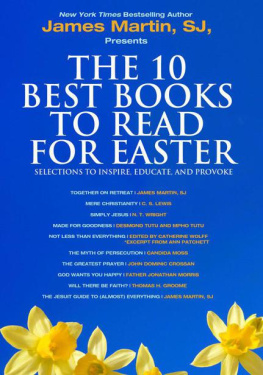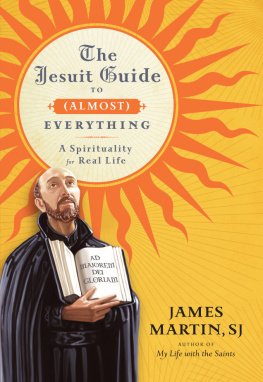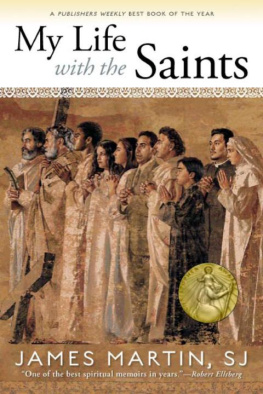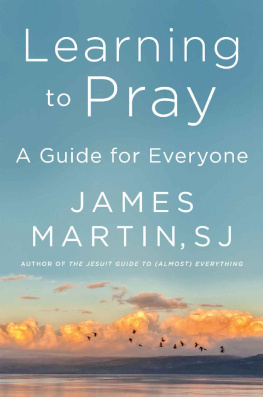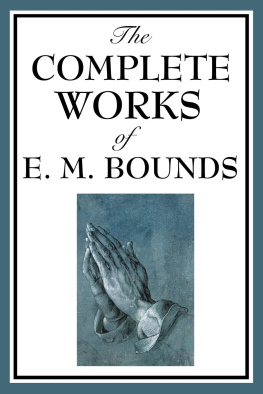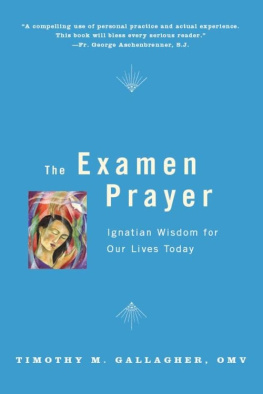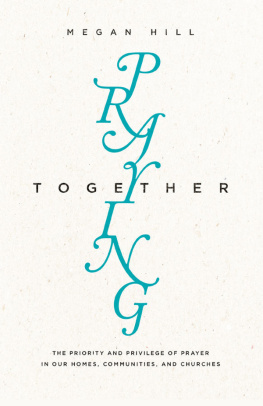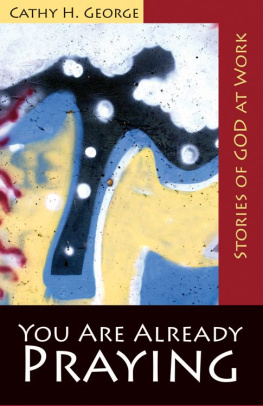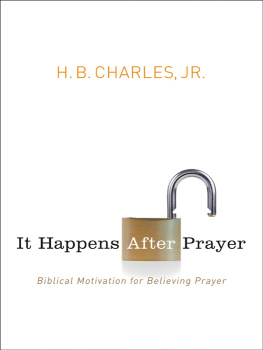Since 1909, America, the National Catholic Review, has been widely known as a place where readers can look in print and, more recently, online, for a smart Catholic take on events of the day. What is less well known is that during those same years America has regularly published a great many articles on more overtly spiritual matters. In other words, the editors and writers have turned their attention not simply to current events but also to timeless ones.
This new book brings together the very best of Americas writings on a particular topic: prayer.
Prayer can be difficult to write about, because trying to explain it is something like trying to pin down a butterfly. The more you seek to capture it, the more it wants to escape. In the end, what happens in prayer is incommunicable because it happens privately, between one person and God. Even the greatest and most articulate saints have struggled to communicate not only how they pray but also what happens when they do. Often they resort to metaphors that even they admit fail.
Then again, prayer is beyond no person. Everyone can pray. God desires to enter into relationship with each of us, and one need not be a cloistered mystic to enjoy the fruits of prayer.
And so, as the editors have realized since 1909, part of Americas mission is to help people encounter God. To help them encounter God, we are invited to help them to pray.
Youll notice right away how those efforts have changed over the years. Earlier articles are filled with language more flowery than what the modern reader is used to. Likewise, in the earlier work there is generally a more elevated way, as was the custom of the time, of referring to the object and source of our prayer: not Jesus but Christ Our Lord, not God but Almighty God. (And heres a warning for anyone allergic to noninclusive language: get ready for a lot of Hims.) One can also see a gradual shift, after the Second Vatican Council, in favor of a greater degree offor want of a better wordrelaxation around the topic of prayer. Prayer becomes not so much something one must do as something one is invited to do.
Otherwise, not much has changed. The emphasis on trying ones best to pray no matter what the circumstances, the focus less on self and more on God, and the flexibility that has always marked Jesuits and their colleagues, are evident in almost every article.
Several authors take their cue from the Jesuit or Ignatian traditions of prayerthat is, those based on the writings, practices, and traditions of St. Ignatius of Loyola, the sixteenth-century founder of the Society of Jesus. Many authors make reference to the Spiritual Exercises, the now-classic manual for a four-week retreat written by St. Ignatius. In the Exercises, Ignatius frequently encourages the retreatant to imagine himself or herself within a Gospel scene, as one progresses through the life of Christ, with as much vividness as possible. So you will see frequent references to some aspects of the Exercises.
Several writers seem to be making a case for one form of prayer over another. So perhaps this is a good time to remind readers that there is no best way of prayer. Whatever works best for you is the best way of prayer. Some may enjoy Ignatian contemplation, others the Rosary, others centering prayer, others the examination of conscience. The Mass of course is the source and summit of Catholic prayer, as Vatican II reminded us, but in addition to the Mass it is important for believers to try a variety of ways to pray, in order to get a taste of a particular practice, and to try them at different points in ones life, because ones spiritual tastes may change. But any way that you choose to relate to God is worthwhile.
Think of prayer, as one of our writers, William A. Barry, SJ, likes to say, as a personal relationship. Friends often relate to one another in different wayssome like to take long walks; some like to see movies together; some like to have cups of coffee in one anothers home; some like to talk on the phone; and so on. At some point every relationship needs intimate, one-on-one time. This intimate, one-on-one time with God is called prayer. But there are many ways to pray.
Also, remember that prayer may not always seem rich. As many writers admit in this collection, sometimes prayer seems dry. This is simply part of the spiritual life. In the end, however, no time spent in the presence of God is ever wasted. Any time spent in the presence of God is transformative.
One final note: Much of this bookthe preparation and the assembly of the articlesis the work of Joseph McAuley, an assistant editor at America magazine. His quiet, tireless, humble work on this manuscript was a kind of prayer itself. Thanks also to Tim Reidy, executive editor; and Ashley McKinless, associate editor; for all their help on this volume.
And to our co-publishers at Loyola Press, I would like to thank Joe Durepos for working so hard to help bring this book to completion; Vinita Wright and Yvonne Micheletti for their careful help in the editing; and Andrew Yankech for assisting with the final cover selection. Were so grateful to be working with such a wonderful Jesuit ministry.
On behalf of the editors of America, I would like to welcome you into this treasury of writings by authors who have graced our pages and our website. We hope that this little book helps you pray. We ask for your prayers. And we promise you ours.
James Martin, SJ, is a Jesuit priest, editor at large, of America and author of many books including Jesus: A Pilgrimage, The Jesuit Guide to (Almost) Everything, and My Life with the Saints.
The presence in our waters of battleships from many nations, and especially of the Italian squadron, suggests the appositeness of reproducing The Prayer of the Italian Mariner, composed by the bishop of Cremona. Admiral Mirabello, the Italian Minister of Marine, has pronounced it fervently patriotic and thrilling with exalted poetic inspiration and ordered that it be printed on sheets of parchment and posted on every warship of the Italian navy. We take it from La Semaine Catholique of Toulouse.
To Thee, great God, Lord of the Heavens and the Deep, Whom winds and waves obey, we, men of the sea and of war, officers and soldiers of Italy, from the decks, of the armed fleet of our Fatherland raise up our hearts. Save and exalt in faith, Great God, our Nation; save and exalt our King; give power, give glory to our flag, whereer it waves; bid tempest and surge be subject, let the enemy be inspired with God-sent fear. May hearts of iron stronger than the armor of our fleet be ever beneath its folds to defend, and may it ever be victorious. Bless, Lord, our distant homes and those who dwell therein; bless, this coming night, the slumbers of our people. Thy blessing, too, for us who keep watch for them in arms upon the sea. Thy blessing!


